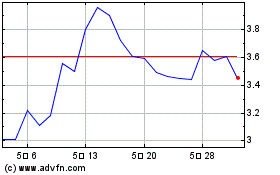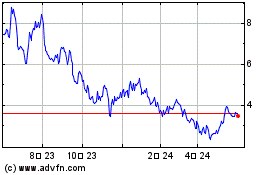Adaptive Biotechnologies Corporation (Nasdaq: ADPT), a commercial
stage biotechnology company that aims to translate the genetics of
the adaptive immune system into clinical products to diagnose and
treat disease, today announced that Palmetto GBA, a Medicare
Administrative Contractor (MAC) that assesses diagnostic
technologies through its Molecular Diagnostics Services Program
(MolDX), has expanded coverage of clonoSEQ® to include detection
and monitoring of measurable residual disease (MRD)
in Medicare patients with mantle cell lymphoma (MCL).
MCL is a sub-type of non-Hodgkin lymphoma (NHL) with an annual
incidence of approximately 4,000 cases per year in the United
States.1 It is an aggressive disease, and most patients will
relapse repeatedly; some shortly after frontline therapy, while
others as late as 15 years after initial remission.2,3 Given this
challenging and variable course of disease, it is critical to
effectively assess depth of response in patients undergoing
treatment and monitor for recurrence or disease progression
following remission.
MRD, or the cancer cells that may remain in a patient’s body
during and after treatment, is assessed through a series of tests
over a patient’s cancer journey. In MCL, clonoSEQ is a minimally
invasive, blood-based MRD testing option that can be used to assess
response, understand prognosis, and monitor patients to detect
molecular recurrence before clinical or radiographic relapse.
“The value of MRD in MCL has been demonstrated in studies and
supported by experiences in our own clinical practice,” said Anita
Kumar, M.D., associate attending physician, Memorial Sloan
Kettering Cancer Center. “New treatment strategies in MCL are
improving the outlook for patients with this aggressive disease,
creating a need for MRD insights as a complement to traditional MCL
monitoring tools such as imaging. Access to highly sensitive,
blood-based MRD testing will empower clinicians to more precisely
monitor the quality and depth of response and remission, and more
accurately predict clinical relapse.”
This updated coverage policy significantly expands access to
clonoSEQ MRD testing for patients being treated for MCL, as the
majority are of Medicare age. The policy extends to all patients
with MCL, regardless of line of therapy or treatment regimen. The
MolDX coverage follows the existing Medicare episode payment
structure utilized for all other covered clonoSEQ indications.
Following the Clinical Laboratory Fee Schedule (CLFS) annual
payment determination process, MolDX recently updated clonoSEQ
episode pricing across all the currently covered indications to
$8,029, in line with the gapfill rate recommended by Medicare
Administrative Contractors. This coverage expansion adds to
existing Medicare coverage for clonoSEQ, which includes
cellular DNA-based MRD testing in multiple myeloma, chronic
lymphocytic leukemia (CLL) and B-cell acute lymphoblastic leukemia
(ALL) and circulating tumor DNA-based MRD testing in diffuse large
B-cell lymphoma (DLBCL).
“In an incurable disease such as MCL, implementing clonoSEQ MRD
assessment is essential not only to identify those patients at high
risk of relapse but also for advancing patient-centric treatment
interventions and multi-modal monitoring strategies,” said Ben
Eckert, senior vice president, Market Access, Adaptive
Biotechnologies. “We’re pleased with MolDX’s decision to provide
access to clonoSEQ for the MCL Medicare population, as coverage
will enable further integration of this important tool into
lymphoma care pathways and ultimately improve outcomes for
patients.”
clonoSEQ testing for patients with MCL is currently available
for clinical use as a laboratory-developed test performed at
Adaptive's CLIA-certified lab in Seattle. clonoSEQ testing in
MCL has also been previously approved by New York State's
Clinical Laboratory Evaluation Program (CLEP).
About clonoSEQ clonoSEQ is the first and only
FDA-cleared in vitro diagnostic (IVD) test service to detect
minimal residual disease (MRD) in bone marrow from patients with
multiple myeloma (MM) or B-cell acute lymphoblastic leukemia
(B-ALL) and blood or bone marrow from patients with chronic
lymphocytic leukemia (CLL). clonoSEQ testing for patients with
diffuse large B-cell lymphoma (DLBCL) is currently available for
clinical use as a laboratory-developed test (LDT) performed at
Adaptive's CLIA-certified lab in Seattle. clonoSEQ is CE-marked
under the In Vitro Diagnostic Regulation (IVDR) in the
European Union (EU). For the approved intended use in the EU under
IVDR, please refer to the instructions for use, available on
request.
clonoSEQ leverages Adaptive Biotechnologies’ proprietary immune
medicine platform to identify and quantify specific DNA sequences
found in malignant cells, allowing clinicians to assess and monitor
MRD during and after treatment. The assay provides standardized,
accurate, and sensitive measurement of MRD that allows physicians
to predict patient outcomes, assess response to treatment, inform
changes in therapy, monitor disease burden over time, and detect
potential relapse early. Clinical practice guidelines in
hematologic malignancies recognize that MRD status is a reliable
indicator of clinical outcomes and response to therapy, and
clinical outcomes have been shown to be strongly associated with
MRD levels measured by clonoSEQ in patients diagnosed with CLL, MM,
B-ALL and DLBCL.
For important information about the FDA-cleared uses of
clonoSEQ, including the full intended use, limitations, and
detailed performance characteristics, please visit
www.clonoSEQ.com/technical-summary.
About Adaptive BiotechnologiesAdaptive
Biotechnologies (“we” or “our”) is a commercial-stage biotechnology
company focused on harnessing the inherent biology of the adaptive
immune system to transform the diagnosis and treatment of disease.
We believe the adaptive immune system is nature’s most finely tuned
diagnostic and therapeutic for most diseases, but the inability to
decode it has prevented the medical community from fully leveraging
its capabilities. Our proprietary immune medicine platform reveals
and translates the massive genetics of the adaptive immune system
with scale, precision and speed. We apply our platform to partner
with biopharmaceutical companies, inform drug development, and
develop clinical diagnostics across our two business segments:
Minimal Residual Disease (MRD) and Immune Medicine. Our commercial
products and clinical pipeline enable the diagnosis, monitoring,
and treatment of diseases such as cancer and autoimmune disorders.
Our goal is to develop and commercialize immune-driven clinical
products tailored to each individual patient.
Forward Looking StatementsThis press release
contains forward-looking statements that are based on management’s
beliefs and assumptions and on information currently available to
management. All statements contained in this release other than
statements of historical fact are forward-looking statements,
including statements regarding our ability to develop,
commercialize and achieve market acceptance of our current and
planned products and services, our research and development
efforts, and other matters regarding our business strategies, use
of capital, results of operations and financial position, and plans
and objectives for future operations.
In some cases, you can identify forward-looking statements by
the words “may,” “will,” “could,” “would,” “should,” “expect,”
“intend,” “plan,” “anticipate,” “believe,” “estimate,” “predict,”
“project,” “potential,” “continue,” “ongoing” or the negative of
these terms or other comparable terminology, although not all
forward-looking statements contain these words. These statements
involve risks, uncertainties and other factors that may cause
actual results, levels of activity, performance or achievements to
be materially different from the information expressed or implied
by these forward-looking statements. These risks, uncertainties and
other factors are described under "Risk Factors," "Management's
Discussion and Analysis of Financial Condition and Results of
Operations" and elsewhere in the documents we file with
the Securities and Exchange Commission from time to time.
We caution you that forward-looking statements are based on a
combination of facts and factors currently known by us and our
projections of the future, about which we cannot be certain. As a
result, the forward-looking statements may not prove to be
accurate. The forward-looking statements in this press release
represent our views as of the date hereof. We undertake no
obligation to update any forward-looking statements for any reason,
except as required by law.
ADAPTIVE MEDIA:Erica Jones, Associate Director,
Corporate Communications206-279-2423media@adaptivebiotech.com
ADAPTIVE INVESTORS:Karina Calzadilla, Vice
President, Investor
Relations201-396-1687investors@adaptivebiotech.com
1 Kallam A, Vose J. Current treatments in mantle cell lymphoma.
Oncology. 2023;37:326-333.
https://www.cancernetwork.com/view/current-treatments-in-mantle-cell-lymphoma.
Accessed November 5, 2024.2 Cohen JB, Ruppert AS, Heerema NA, et
al. Complex karyotype is associated with aggressive disease and
shortened progression-free survival in patients with newly
diagnosed mantle cell lymphoma. Clin Lymphoma Myeloma Leuk.
2015;15(5):278-285.3 Cheah CY, Seymour JF, Wang ML. Mantle cell
lymphoma. J Clin Oncol. 2016;34(11):1256-1269.
Adaptive Biotechnologies (NASDAQ:ADPT)
과거 데이터 주식 차트
부터 10월(10) 2024 으로 11월(11) 2024

Adaptive Biotechnologies (NASDAQ:ADPT)
과거 데이터 주식 차트
부터 11월(11) 2023 으로 11월(11) 2024
